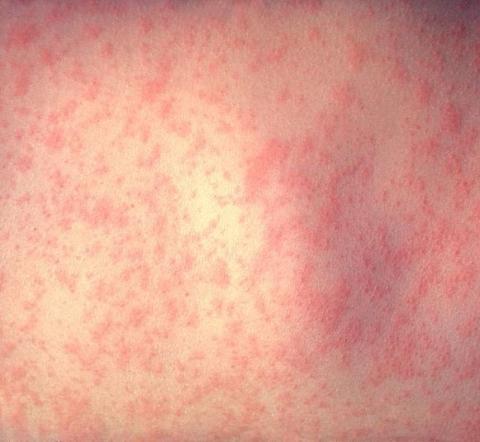Vaccine reminder after small number of measles cases confirmed

The Public Health Agency (PHA) is reminding everyone of the importance of getting the MMR vaccine after it was notified of a small number of measles cases in Northern Ireland and an increase of cases in other countries.
The MMR vaccine can help protect against the mumps, measles and rubella. Children should receive one dose of the MMR vaccine just after their first birthday and a second dose at aged three years and four months. The vaccine is the safest and most effective way to prevent measles infection.
Dr Jillian Johnston, Consultant in Health Protection at the PHA, said: “We have had high uptake levels for MMR immunisation, which is why we have generally seen very few cases of measles here compared with the rest of the UK and Europe.
“However, cases which have occurred here in unvaccinated people are of serious concern and remind us that there is no room for complacency. Although most common in children, it can occur at any age. Measles is a highly infectious disease for those who have not been protected by vaccination and can be caught either through direct contact with an infected person or through the air when the patient coughs or sneezes.
“For those children and young people who have not been vaccinated, it is essential that they get vaccinated as soon as possible. Children who are not already fully vaccinated should contact their GP for the MMR vaccine as soon as possible.
“Anyone who may have been in contact with a measles case and who feels at all unwell should stay at home as this is an infectious condition even before the associated rash develops. Phone your GP so that arrangements can be made to see the patient without putting others at risk.
“It is also important at this time of year, as many of us prepare to go on holiday, to make sure that you check that you are up-to-date with your vaccinations. Many popular holiday destinations see higher incidence rates of measles than here so it’s important to be protected before travelling. Inform your GP of your travel plans and check your vaccination history in case there is a need to have vaccinations before you travel.”
More travel information advice can be found at www.travelhealthpro.org.uk/ and advice on MMR vaccinations can be found on the PHA website www.publichealthagency.org/
Measles guidance
The initial symptoms of measles can include:
- a runny or blocked nose
- sneezing
- sore, red eyes that may be sensitive to light
- a high temperature (fever), which may reach around 40C (104F)
- a cough.
A few days later, a red-brown blotchy rash will appear. This may start on the head or upper neck, before spreading outwards to the rest of the body.
Measles is very infectious so it is important that anyone with suspected measles should avoid a situation where they can spread the disease, such as a GP’s waiting room or an emergency department waiting room. People should therefore phone in advance and get advice rather than just turning up to these venues.
